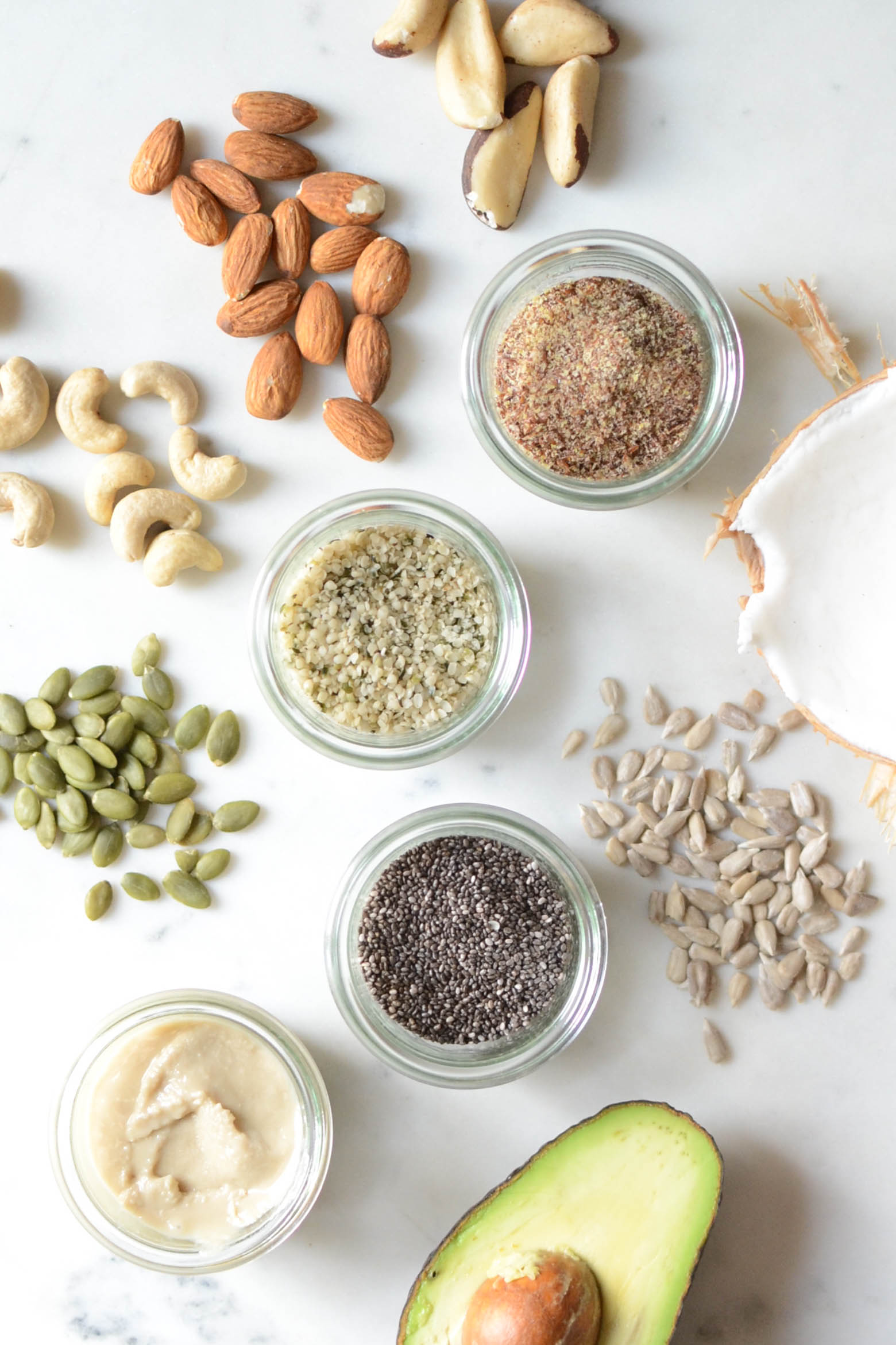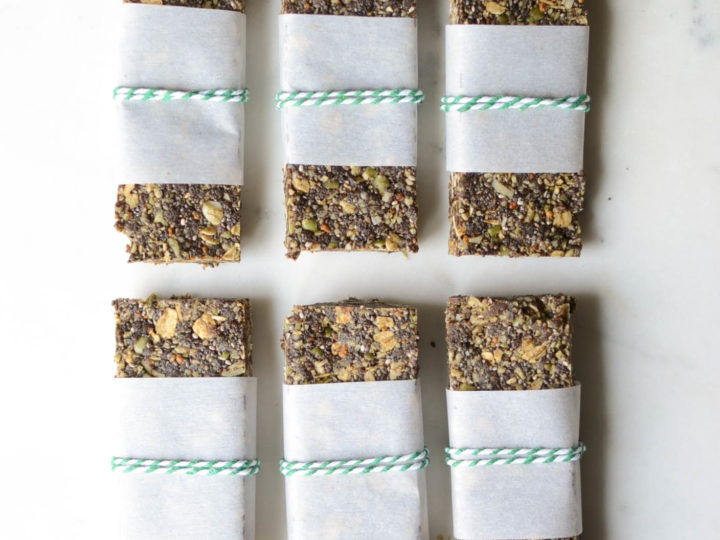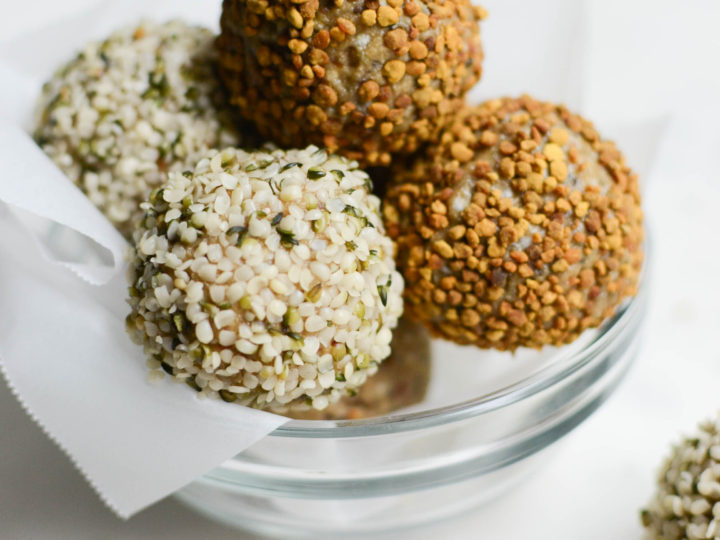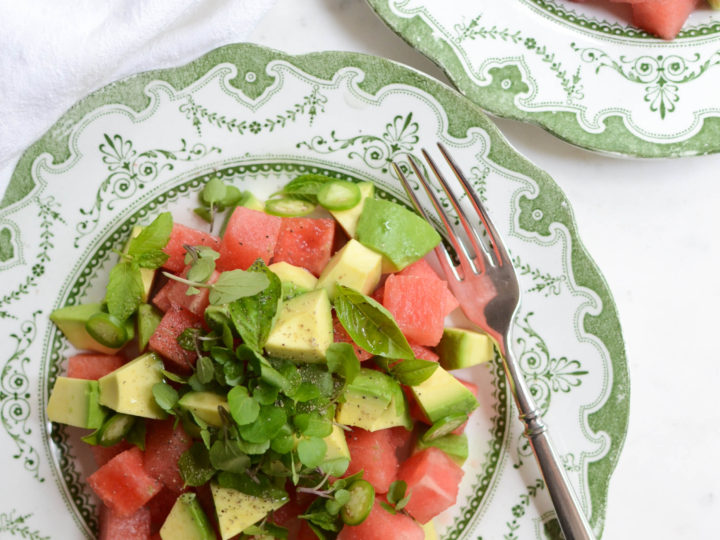
We need three types of macronutrients to live – carbohydrates, protein and fat. However not all fat is created equal. I think most of us know that saturated fat from meat (red meat, white meat, dairy, eggs and fish) creates plaque in our bodies and increases risk of heart disease and stroke and that trans-fats (partially hydrogenated oils) are even worse still. But what is considered healthy fat? It’s best to stick with whole food forms of fat, and limit oil consumption. Although I do use small amounts of olive and coconut oil for dressings, cooking and baking, it is not what I would consider a health food. Comparatively, it is high in calories and low in nutrients and for the majority of our food, we should stick with foods low in calories and high in nutrients. Dr. Fuhrman, who I received my Certificate in Nutritarian Studies from, says H=N/C (health = nutrients/calories), in other words, the more nutrients per calorie, the better for our health. Below are the fats that give you the best bang for your calorie buck.
Raw nuts and unsweetened nut butters – Nuts are a high-nutrient source of plant protein, fiber, antioxidants, phytosterols, and minerals. They reduce risk of heart disease, are associated with longevity and cancer prevention, help with weight loss and have anti-inflammatory effects that may help to prevent insulin resistance. There are so many to choose from… cashews, almonds, walnuts, pecans, brazil nuts, pine nuts, hazelnuts, pistachios, and more! They are perfect for snacking, and thanks to modern kitchen equipment, can be made into delicious treats like these cacao bites, lemon goji bites, or even ice cream. Nut butter is perfect for spreading on an apple or a piece of whole grain toast or adding to smoothies to make them more filling.
Raw seeds and unsweetened seed butters – Seeds have a lot of the same health benefits as nuts plus more! Chia, hemp, and ground flax in particular are concentrated sources of omega-3 fatty acids which are important for baby’s brain development and health of the brain for all ages as well as reduction of inflammation in the body. Flax has also been shown to greatly reduce risk of breast cancer. Seeds are a perfect alternative to healthy fats for those who have nut allergies or to send with you child to school if nuts are not allowed. They can even be ground up into “flour” to make things like pancakes, protein balls and muffins. For allergy friendly seeds, check out Gerbs, Manitoba Harvest and unsweetened Sunbutter.
Avocado – Adding avocado to a balanced plant based diet has been shown to lower risk of heart disease, improve blood levels of LDL, and lower levels of oxidative stress in the bloodstream following consumption of food. Not only that, they also provide us with phytosterols, a special group of fats has been shown to provide important anti-inflammatory benefits to our body systems, including our cardiovascular system. See why adding avocado to salad delivers even more health benefits, whip up some amazing chocolate mousse, mash it on whole grain bread, or just eat it plain! I eat a whole avocado every day, seriously!
Coconut – Yes, coconut contains saturated fat and we are now learning there are many different types of saturated fat. Based on research, lauric acid, the predominant saturated fat in coconut looks likely to be innocuous. Similar to the saturated fat in cacao, which is stearic acid, and has been proven harmless, therefore touting cacao as a superfood due to the high concentration of antioxidants and magnesium. There does still need to be more clinical research on coconut but from the looks of it research points in the direction that it is good for you in its whole form. Besides for its high fat content, coconut is high in fiber, vitamins and minerals, and has antimicrobial properties. It makes a nice yogurt alternative, is great to thicken smoothies (you can buy frozen coconut meat or do it yourself), and dried coconut chunks and flakes are great for snacking and toppings.
Olives – The high monounsaturated fat content of olives has been associated with reduced risk of cardiovascular disease and their phytonutrients have anti-inflammatory properties. Please note that the brining process adds a lot of salt so I would not recommend eating olives to anyone who has high blood pressure (stick with unsalted nuts and seeds and avocado).




